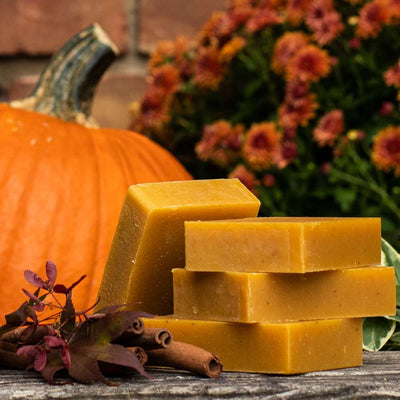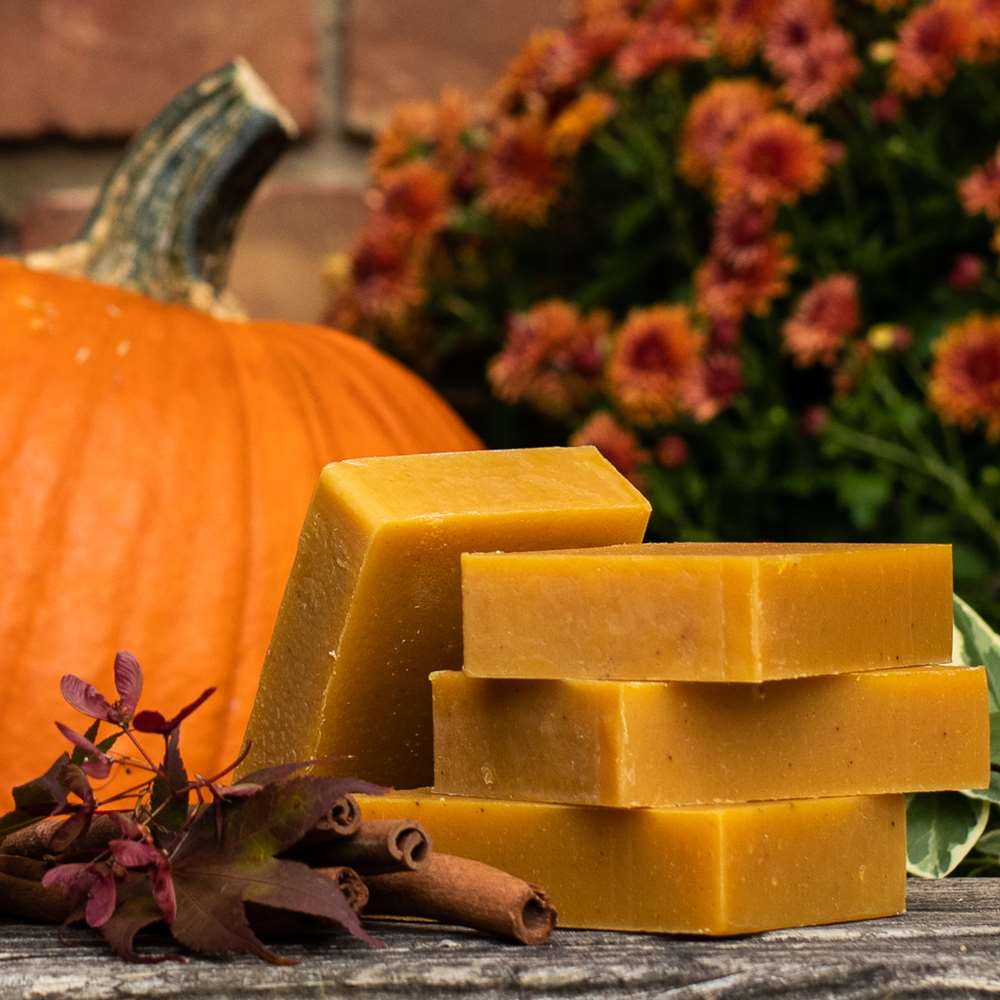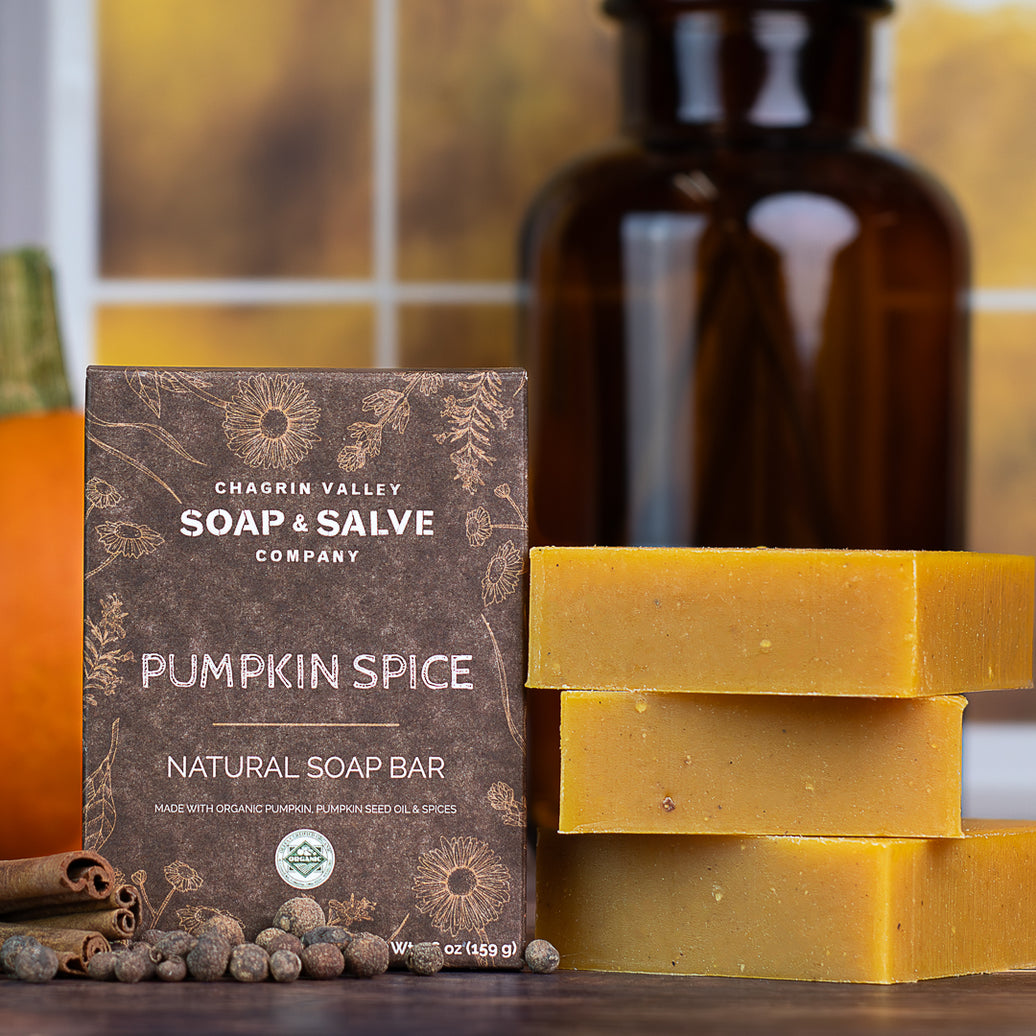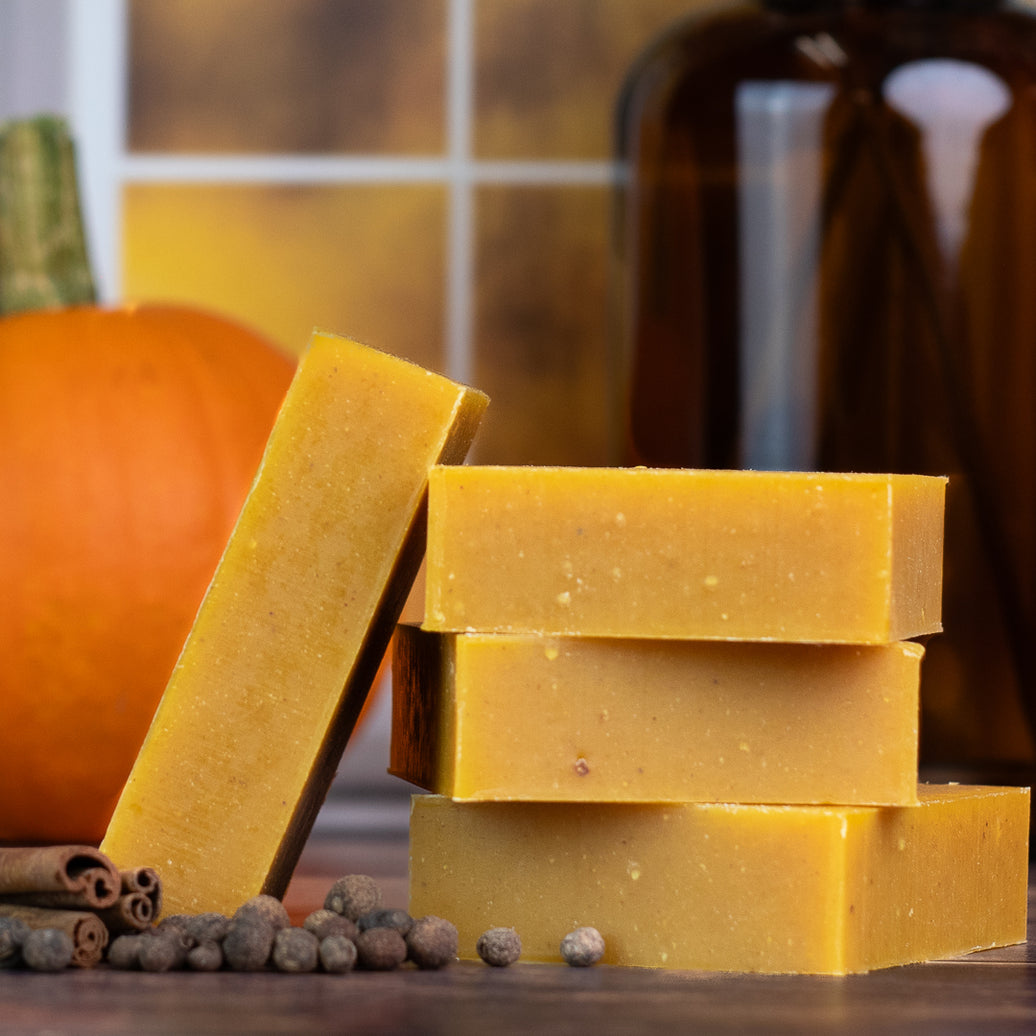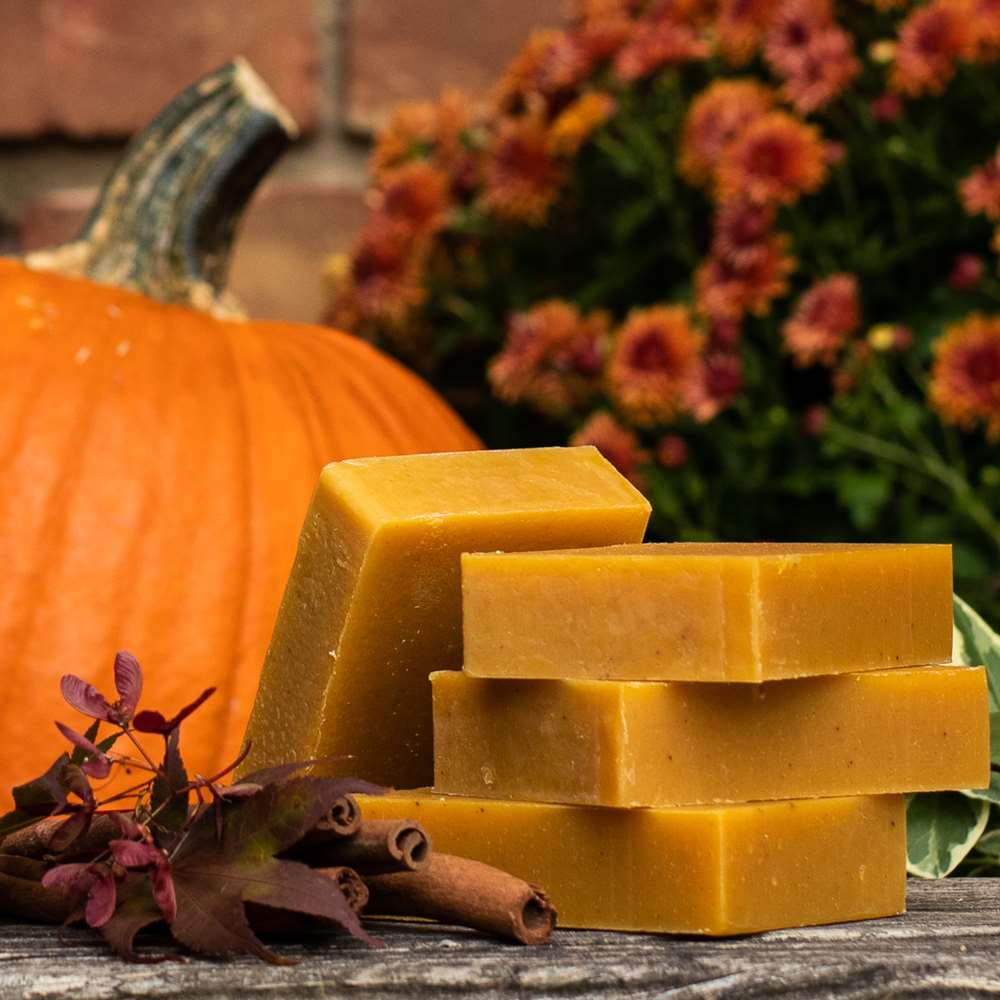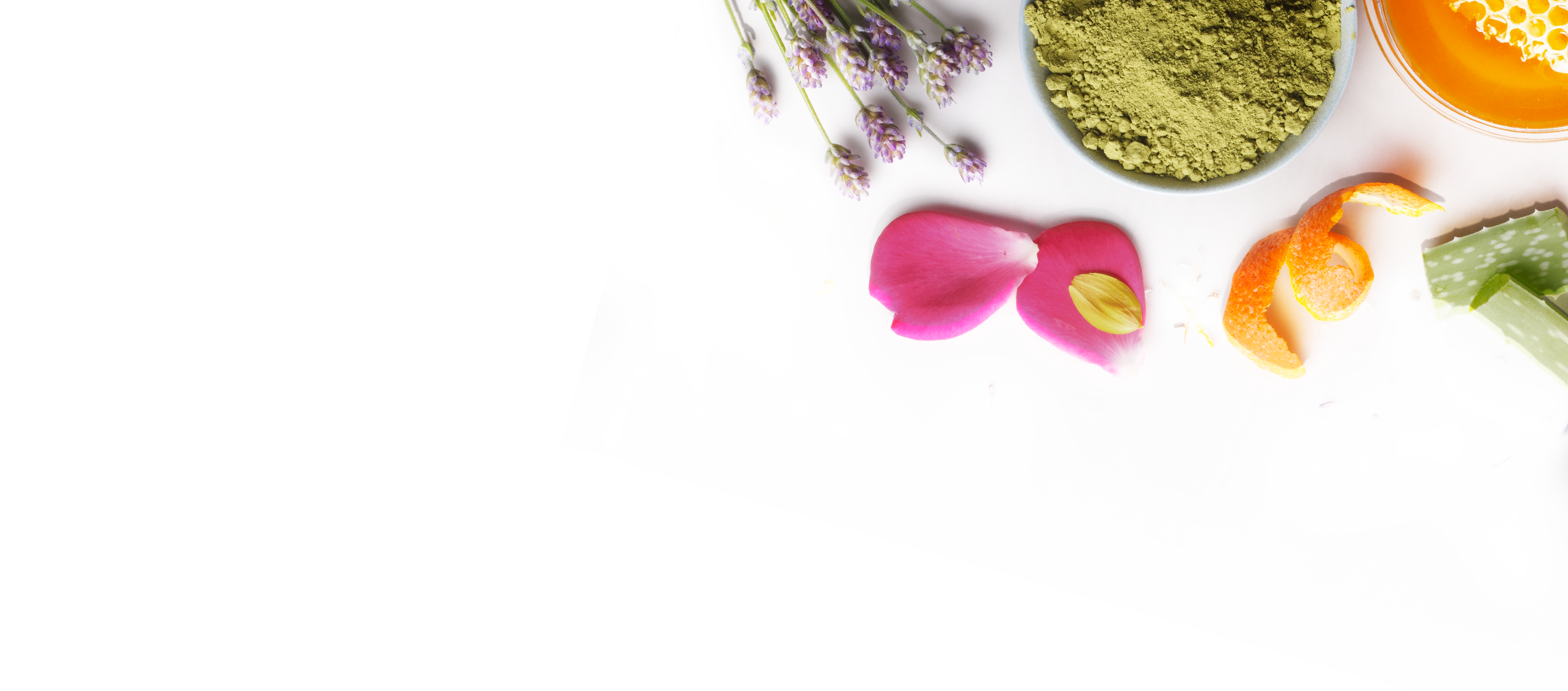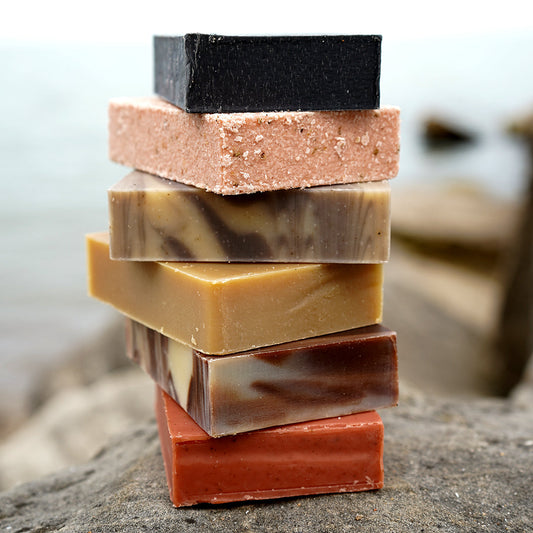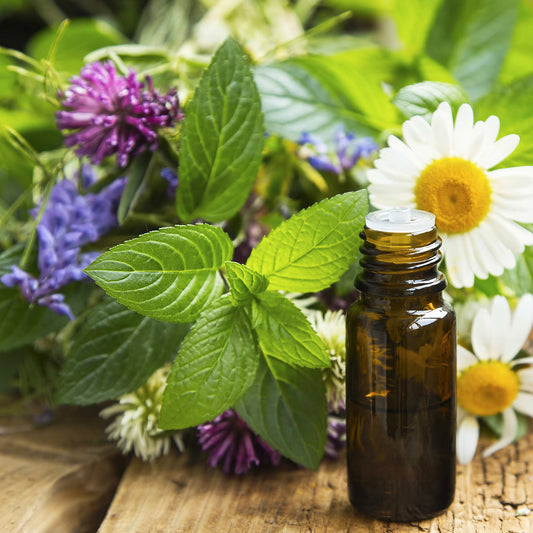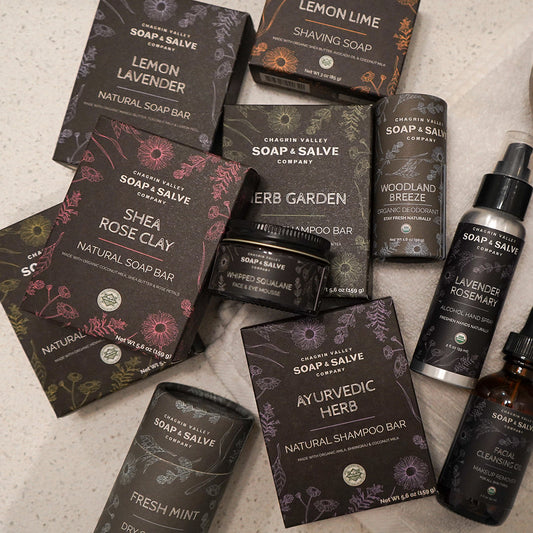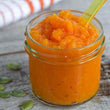
Natural Soap: Pumpkin Spice
Natural Soap: Pumpkin Spice
- Out Of Stock






Product Overview
Our autumn seasonal favorite, a natural soap with the delicious aroma of freshly baked pumpkin pie, will have you daydreaming about harvest hayrides and campfires.
Plug the words "Pumpkin Spice Soap" into your favorite web browser. Are the soaps you find made with real pumpkin--or simply scented with synthetic pumpkin spice fragrance oil? Our Pumpkin Spice soap is made with real pumpkin, ground spices, and enriched with cocoa butter. This natural soap, colored by pumpkin pulp and turmeric, is loaded with beta-carotene.
While you are likely familiar with all the delicious treats you can make with real pumpkin, did you know that pumpkin also has great benefits when used on your skin?
From the seeds to the flesh, pumpkins are loaded with nutrients that are helpful for the skin. Real pumpkin pulp is rich in essential fatty acids, vitamins, minerals, and beneficial enzymes that help soothe and soften dry skin. Pumpkin pulp also adds a creamy texture to the soap. The moisturizing lather is filled the scent of warm essential oil blend combined with the perfect mix of spices (NO fragrance oils here). As you shower close your eyes and allow your senses to experience all the wonderful memories of the Fall season.
We use virgin pumpkin seed oil, cold pressed from the seeds, with a naturally dark green color and a nutty aroma. This highly nourishing and emollient oil is rich in vegetable protein and contains many valuable nutrients and phytosterols.
Turmeric has anti-inflammatory and healing properties. Rich in antioxidants, turmeric is a common ingredient in Ayurvedic skincare products to naturally promote glowing, smooth skin.
Made with REAL nourishing Pumpkin, organic spices and essential oils NOT pumpkin fragrance oil!
We make limited quantities of our seasonal soaps, so once they are sold out, they are gone for the season.
How To Use
What Should I Use With My Natural Soap to Clean My Body?
 The purpose of soap is to combine with oil and dirt on the body, which allows water to wash it away. The method you use to cleanse your skin is really a personal preference. We thought we would share just a few examples.
The purpose of soap is to combine with oil and dirt on the body, which allows water to wash it away. The method you use to cleanse your skin is really a personal preference. We thought we would share just a few examples.
Bar Bathers rub the bar directly on their skin to create a creamy lather. Massaging the velvety lather into your skin before rinsing allows you to experience the best moisturizing properties of the soap. This is definitely the best way to use exfoliating soaps.
Hand Latherers create lather in their clean hands and use the lather to massage and wash the skin. This gentle, mild cleansing method may be good for those with sensitive skin.
 Washcloth Washers use a washcloth to lather up. Washcloths are made out of lots of different textile textures, from soft cotton to agave fibers, and can provide very gentle to intense exfoliation. Be sure washcloths are laundered and dried often.
Washcloth Washers use a washcloth to lather up. Washcloths are made out of lots of different textile textures, from soft cotton to agave fibers, and can provide very gentle to intense exfoliation. Be sure washcloths are laundered and dried often.
Puff Polishers use a mesh puff that works up a foamy, bubbly lather, even with hard water, to wash and gently exfoliate the skin. Poofs make natural soap last longer but can harbor bacteria, so rinse thoroughly after use and replace every few weeks or clean per manufacturer's instructions.
Loofah Latherers love their loofahs that exfoliate and help increase circulation. Whole loofahs can be breeding grounds for bacteria, so be sure they dry out properly after use and replace them every two months. If you would like something less abrasive, check out our Bath & Body Accessories.
Soap Sackers place their soap into a nylon soap bag. The fibers have a smooth texture for gentle cleansing. Soap sacks can be used for whole bars of soap or scraps that would normally be thrown away.
There is a large variety of bathing accessories available. If using any accessory, never share them with others and replace or clean them often.
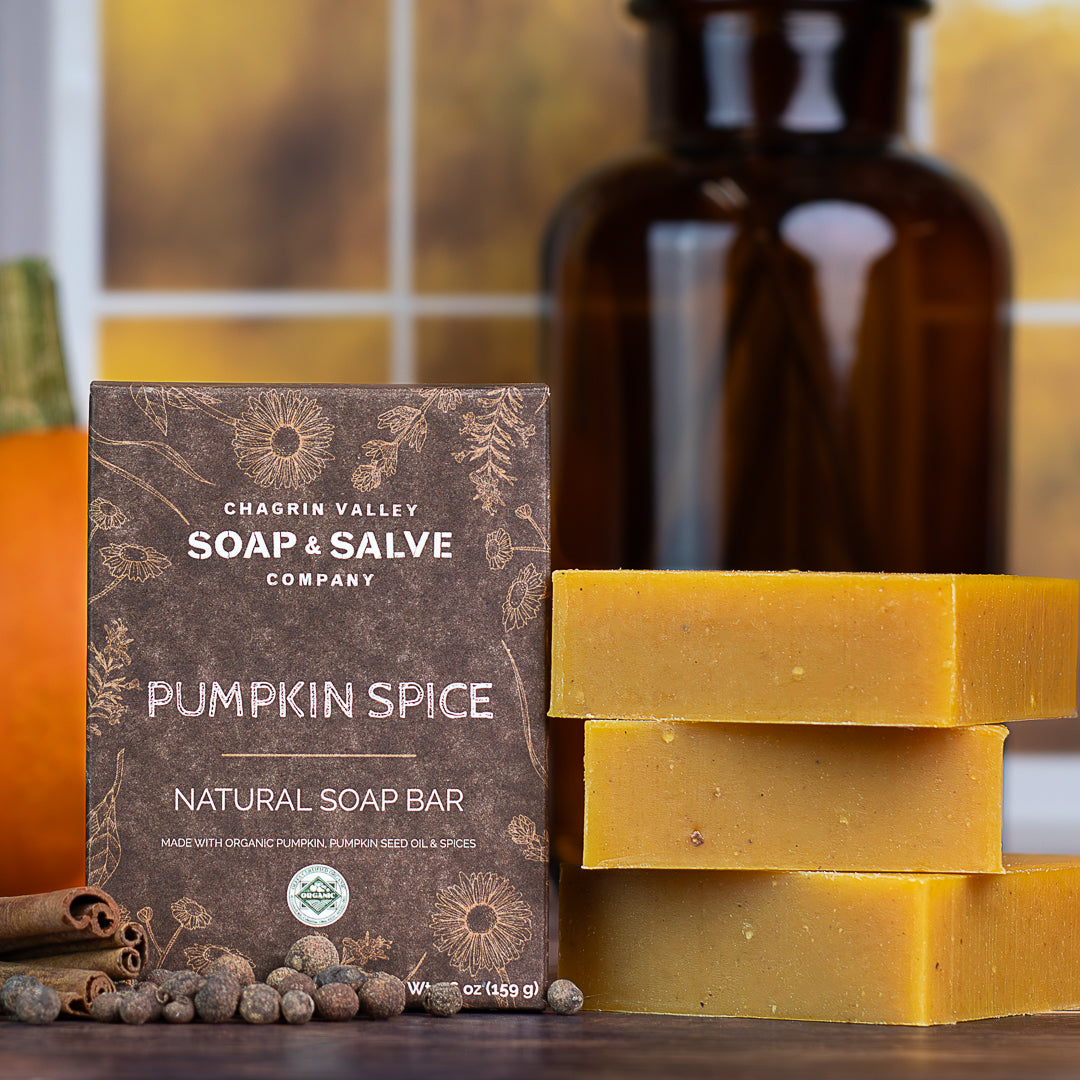
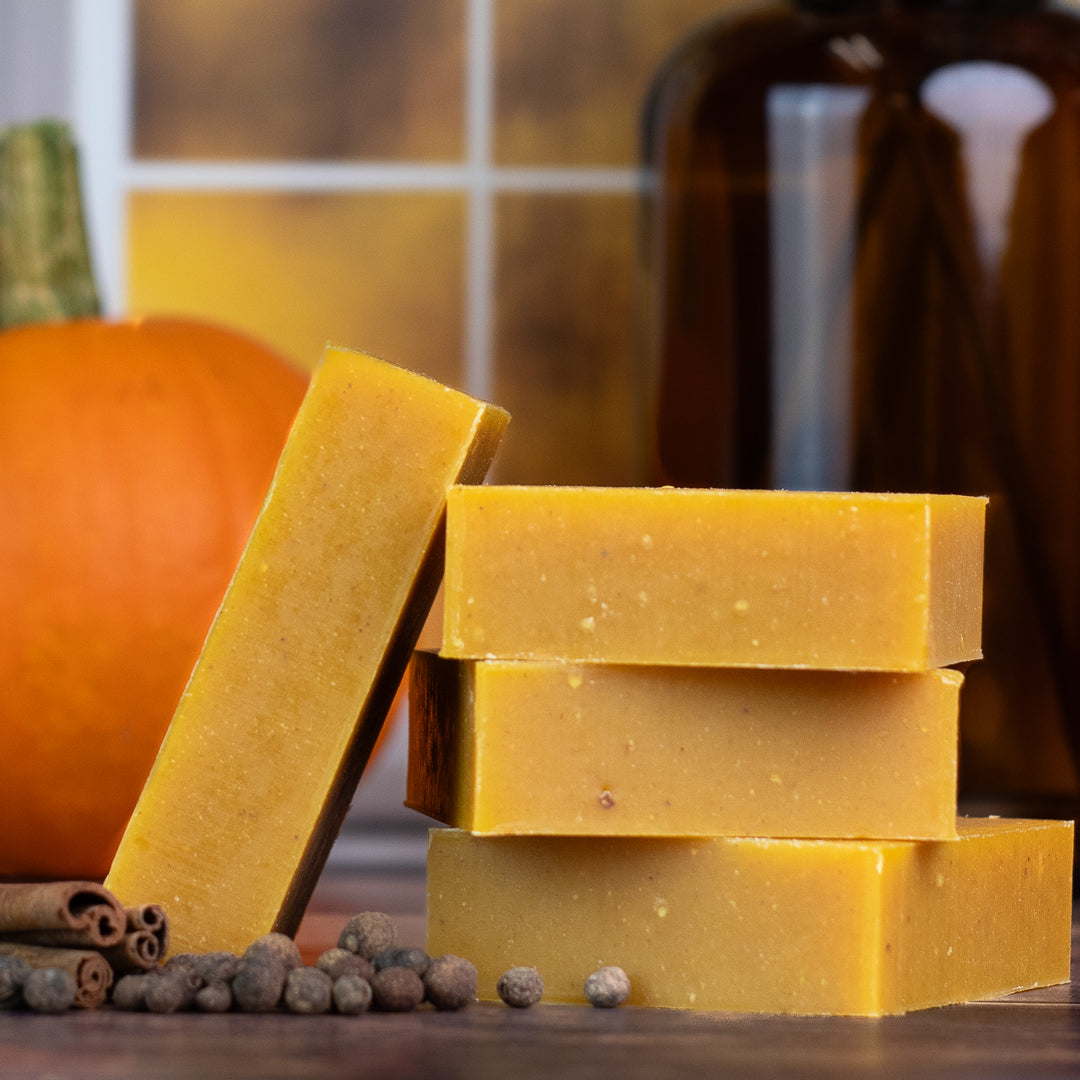
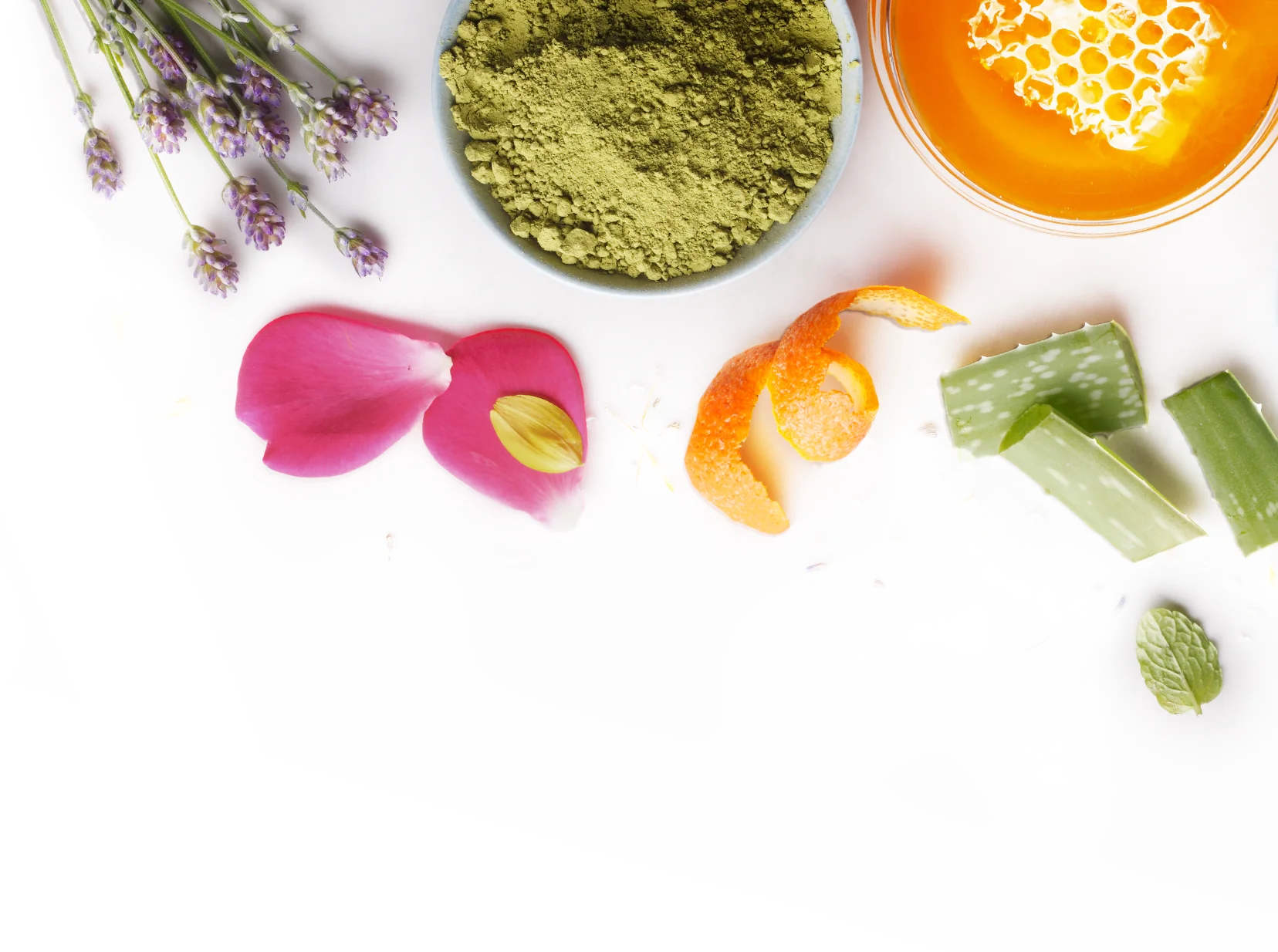
Effective, Feel Good Ingredients
The goal is simple: to Harness the Power & Simplicity of Nature® to cleanse, soothe, heal, and protect your skin and hair!
Our unique formulas rely on moisturizing oils and butters, healing botanicals, and pure essential oils. We choose every ingredient with one end-result in mind….the BEST possible natural skin care for YOU!
Featured Ingredients


Organic Pumpkin Seed Oil
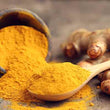
Organic Turmeric
All Ingredients:
|
*Ingredient is Fair Trade Certified ^Used in the saponification process to turn oil into soap and glycerin. None remains in the finished product.
Made with certified organic Pumpkin, Pumpkin Seed Oil & Spices
|
Frequently Asked Questions
Why Choose Chagrin Valley Natural Soaps
Aren't all handmade natural soaps the same? . . .
The answer is NO!
 Saying a soap is "handmade" says nothing about quality of the ingredients or the knowledge and skill of the soapmaker!
Saying a soap is "handmade" says nothing about quality of the ingredients or the knowledge and skill of the soapmaker!
Chagrin Valley is not just another soap and skincare company. We are committed to healthy skin, healthy people and a healthy planet.
We are a USDA Certified Organic Company specializing in luxurious, organic, handmade natural soaps and shampoo bars rich in natural glycerin for healthier skin and hair.
It's all about the ingredients! Inspired by our love of nature, we use organic herbs, seeds, flowers, vegetables, fragrant spices, fruits, pure essential oils and purifying clays for their exceptional skincare benefits and to provide natural color, aromatherapy, texture, or gentle exfoliation. Nothing artificial, nothing synthetic, no GMO’s, just natural wholesome ingredients.
Chagrin Valley's Natural Soap & Shampoo Bars Are...
- all natural
- made with USDA Certified Organic ingredients
- handcrafted in small batches using the old-fashioned Cold Process Method
- made with sustainable and fair trade ingredients
- certified cruelty-free
- free of detergents
- free of synthetic fragrances
- free of synthetic colors
- free of artificial preservatives
- free of artificial foam boosters
- free of alcohol and petroleum products
- free of synthetic additives
- free of GMOs
- biodegradable
- mild and nourishing
- rich in natural glycerin
- magnificent long-lasting lather
- cured for 8 to 10 weeks
Our soap making process uses only natural and organic ingredients. Why add artificial ingredients to a handmade product?

"Are All Handmade Soaps The Same?"
"12 Reasons to Use Natural Soap"
View Answer Page
How Long Will A Bar of Natural Soap Last?
Short Answer
 How long a natural soap bar will last depends on:
How long a natural soap bar will last depends on:
- how many people are using it
- how often you bathe or shower
- how you use the bar
For one person showering every day, a well-drained bar should last for about one month.
Longer Answer
Natural soaps are normally softer than commercial soaps because they retain their natural glycerin (which is removed in commercial soap production) and contain no artificial hardening chemicals, synthetic waxes or free alkali.
We also superfat our soaps (add extra oils or butters) and use "softer" oils so that Chagrin Valley natural soaps are more emollient and leave skin feeling moisturized.
Different oils impart different qualities to soap. Some add lathering qualities, some moisturizing, some hardness, and so on. Compared to other natural bars, we use a larger percentage of extra moisturizing and conditioning oils in our soaps and shampoo bars. These oils produce a bar that may not be as hard as bars with less conditioning oils.
How you use the bar will also affect its lifespan. For example, do you use a washcloth, an exfoliating accessory, or only the bar? Although exfoliating loofahs and sponges are great they will use up the soap much faster than a washcloth or the "only the bar" purists.
Our Natural Soap Will Last A Long Time With Proper Care
- Don't let your soap sit in water
- Store soap on a well-drained soap dish
- Allow soap plenty of fresh air to dry between uses
- Never place soap where shower water can continuously hit it
- If your bar ever gets waterlogged and becomes gooey, simply set it on a draining soap dish or stand it on its edge for a few days and let it dry out thoroughly
Cute Story: A customer called to say she loved our soaps but could not buy them anymore because they did not last as long as other soaps. A week later she called to place an order and apologize. Her husband, who would NEVER use her natural soaps before, fell in love with her new Juniper soap . . . and he showered twice a day!
To maximize the life of your soap, keep it in a well-drained soap dish so it can dry between uses.
We sell a handcrafted solid white oak soap dish. The deep ridges are perfect for keeping your all natural handcrafted soap dry between uses. White Oak is the wood used in shipbuilding.
A tip passed on by one of our customers whose kids always leave the soap in a water puddle: cut the large bars in halves. Then alternate the halves, allowing a longer drying time between uses.
View Answer Page
Do Your Natural Soap And Shampoo Bars Have An Expiration Date?
The Short Answer
Yes And No!
Although handmade natural soaps usually get better with age, we recommend using our soaps within 12 months of purchase. Our scented soaps should be used within 3 months after removing them from the box.
Although the soaps will not be "spoiled" after that time, you may notice some changes as natural soap ages.
- some natural colors may fade over time
- the scents from pure natural essential oil scents will fade over time
The changes in color and scent happen even more quickly in our sample size bars.
These small natural soap bars have a much greater surface area to volume ratio which allows essential oils to evaporate from the surface more quickly. However, the scent may still be there when you lather up.
I have found some ancient bars hiding in my closet that years old. The scents were gone, but the lather was incredible!
The Long Answer
For a more detailed discussion please read our blog, "The Shelf Life, Color & Scent of an All Natural Soap."
How You Can Help Prolong Shelf-Life
-
Natural soaps need to breathe. Exposure to air promotes hardening of your soap and contributes to longer-lasting quality. Soap should be left unwrapped in their boxes or wrapped with breathable materials. Tight wrappers cause humid conditions by preventing evaporation of moisture.
- Our soaps are packaged in breathable, recyclable, sustainable packaging! Keep your natural handmade soaps in a dry, cool place away from sunlight, excessive heat and humidity.
- Our scented soaps, like Lavender Rosemary, can be placed in a muslin bag, old clean sock, or wrapped in a piece of cloth and put in your linen closet or dresser drawer to give a delightful fragrance to your linens and clothes while waiting to be used.
View Answer Page
Is There Lye Your Natural Soap?
Is There Lye In Natural Soap?
 If you are asking the question:
If you are asking the question:
Do you use lye (sodium hydroxide) to make Chagrin Valley natural soap?
The answer is -- yes, of course.
No lye -- No soap!
All REAL soap is made with lye (sodium hydroxide mixed with a liquid).
Any skin or hair cleansing product made without sodium hydroxide is not soap, it is a detergent.
If you are asking the question:
Is there lye in a bar of Chagrin Valley Natural Soap or Shampoo?
The answer is "No."
When the chemical reaction of making soap, called saponification, is complete, the lye and oil molecules have combined and chemically changed into soap and glycerin.
If the soap is made properly, the lye is used up in the saponification process to turn oil into soap.
There is no lye present in the finished bars of soap or shampoo. While all real soap must be made with lye, no lye remains in our finished product after saponification (described below).
But, It Doesn't Say "Lye" or "Sodium Hydroxide" on My Soap Bar Ingredients
If it is real soap or contains read soap, it is made with lye!
Some commercial "soap" bars and all handmade soap bars are made with lye even though the words "sodium hydroxide" or "lye" do not appear on the labels. Does your bar of "soap" contain ingredients such as...
- saponified oils: oils and butters are mixed with sodium hydroxide and a liquid (usually water).
- sodium cocoate: the generic name for the mixture of coconut oil with sodium hydroxide (lye).
- sodium palmate: the generic name for the mixture of palm oil with sodium hydroxide (lye).
- sodium palm kernelate: the generic name for the mixture of palm kernel oil with sodium hydroxide (lye).
- sodium tallowate: the generic name for the mixture of beef fat (tallow) with sodium hydroxide (lye).
- sodium olivate: the generic name for the mixture of olive oil with sodium hydroxide (lye).
These words are not usually used to deceive consumers. But soap makers know that consumers are afraid of the word "lye."
At Chagrin Valley we believe that today's consumers are pretty savvy and the best practice is to educate.

"Is There Lye in Natural Soap? Won't it Harm My Skin? Information about lye and the chemistry of soap making
View Answer Page
Is Your Palm Oil From Plantations That Protect Our Rainforests?
We often receive emails from concerned customers that have read about the devastating effects that palm plantations can have on tropical forests.
At Chagrin Valley Soap we treasure our planet and its inhabitants. We know that although we play a very small part, we must always make choices that are ecologically and socially responsible.
As the global demand for palm oil continues to increase we want to be part of the global initiative that changes how that palm oil is grown.
Our Palm Oil is grown and manufactured according to standards for sustainable practices set forth by Palm Done Right.
Certified Sustainable
Certified sustainable by RSPO (The Roundtable on Sustainable Palm Oil) and Palm Done Right

Our USDA organic palm oil variety carries RSPO Certification, otherwise known as Roundtable on Sustainable Palm Oil, guaranteeing the sustainability and traceability of the palm oil production throughout the supply chain.
It has RSPO-IP (Identity Preserved) certification which is one of four certification levels offered by the RSPO and carries the highest and strongest level of sustainable guarantee with traceability of each lot of palm oil back to the field of origin. With Identify Preserved sustainable palm oil, the entire batch of palm oil is from a single identifiable certified source and kept separate from all non-certified batches.

Palm Done Right presents the first fully integrated, 100 percent organic supply chain in the palm oil industry. Palm Done Right requires a fair labor certification, organic certification, Non-GMO Project Verification, and has the highest level of certification — Identity Preserved — offered by the Roundtable for Sustainable Palm Oil (RSPO).
As the global demand for palm oil continues to increase, we believe that if both manufacturers and consumers demand Certified Sustainable palm oil, producers will grow Certified Sustainable palm oil. That is the only way to really protect our rainforests.
If there is no demand for sustainable palm oil, growers will continue their cheaper unsustainable practices, because no one is paying them for a sustainable product. (If you build it, they will come!)
Please read our blog, "Will A Palm Oil Boycott Really Help?"
View Answer Page
What are essential oils?
What Are Pure Essential Oils?
Have you ever enjoyed the scent of a fragrant flower or herb? The fragrance comes from potent, aromatic compounds called essential oils found in the flowers, stems, seeds, bark, roots, fruits, and other parts of plants. It often requires several pounds of a plant to produce a single bottle of essential oil.
Essential oils not only give plants their unique scents but also help lure plant pollinators and protect plants from insects and other predators.
The chemical composition of essential oils may provide valuable psychological and physical aromatherapeutic benefits for some people.
It is important to note that to be a true essential oil, the oil must be isolated from the plant material by physical means only. Essential oils are NEVER extracted using solvents.
Although synthetic fragrances or "nature identical" oils are available at a much lower cost, only natural plant essential oils will provide any aromatherapeutic benefits.

What Are Essential Oils (Much more detail)
How Essential Oils Are Extracted
Why We Use Only Real Plant Essential Oils?
If you are pregnant or under a doctor's care for any medical condition, please consult your healthcare provider before using essential oils.
Pregnancy & Children: We do not provide information on the safety of essential oils during Pregnancy or for use in Children because the available information is very ambiguous and often contradictory. If you’re interested in using essential oils during pregnancy or with young children please do your own research and consult your doctor, midwife, or health care professional before use.
View Answer Page
Why Does the Smell of Natural Soap and Shampoo Bars Made with Essential Oils Change?
My natural soap bar doesn't smell the same as the last one
We sometimes receive emails that go like this:
-
I just reordered [some soap]. It is my favorite bar but it does not smell the same. Did you change the recipe?
- This name of this bar is "lavender . . . " but I smell more of the other essential oils than lavender. Why do you call it lavender?
The good news is that when you purchase natural soap from an organic skincare company, it is scented with only pure essential oils.
The bad news is that when you purchase natural soap from an organic skincare company, it is scented with only pure essential oil.
The scent of an essential in any totally natural product can and will change over time and from batch to batch.
Essential Oils are a Natural Ingredient
Essential oils come from nature. The quality and scent of essential oils are affected by yearly weather conditions and varies from crop to crop and region to region.
This makes it very difficult to produce finished products in which the scents are always exactly the same.
Most commercial soaps (and skincare products), even some of the "natural" ones that contain some essential oils, are made with at least some synthetic fragrances oils, nature identical oil, or natural fragrance oil. Using any synthetic fragrance ensures a more consistent scent.
Essential oils are temperamental to work under any circumstance. But while a natural essential oil scent blend may change a bit in a cream or oil, these blends are especially unpredictable when making cold processed natural soap.
After all my years of soap making in never ceases to amaze me just how much the actual soap making process changes the scent of an essential oil blend.

Natural Soap and Essential Oils
Why We Use Only Real Plant Essential Oils?
Natural Fragrance Oil? . . . Really?
Why Are Synthetic Fragrance Oils So Popular?
View Answer Page
Are Your Products and Ingredients Cruelty Free?
All of Chagrin Valley's natural soap, shampoo bars, and personal care products are certified cruelty-free by Leaping Bunny.
Chagrin Valley Soap & Salve has been Leaping Bunny Certified since 2013.
 The Leaping Bunny Program was developed in 1996, by The Coalition for Consumer Information on Cosmetics (CCIC), to identify and support companies that are doing their part to help eliminate the unnecessary use and mistreatment of animals to test cosmetic products and ingredients. The CCIC is made up of eight animal protection groups including the Humane Society of the U.S., as well as groups from Canada and Europe.
The Leaping Bunny Program was developed in 1996, by The Coalition for Consumer Information on Cosmetics (CCIC), to identify and support companies that are doing their part to help eliminate the unnecessary use and mistreatment of animals to test cosmetic products and ingredients. The CCIC is made up of eight animal protection groups including the Humane Society of the U.S., as well as groups from Canada and Europe.
At Chagrin Valley we do not test our finished products on animals (other than human volunteers). But what about the raw materials, the ingredients we use?
Many products display labels claiming that their finished product is ‘not tested on animals’ but this does not guarantee that the product ingredients are actually free from animal testing.
The CCIC Standard is a pledge that a company makes to remove animal testing from all stages of product development. Our pledge to buy ingredients that are cruelty-free is integrated into the purchase agreement for all of our suppliers.
Personal care products displaying the “real” Leaping Bunny logo are certified ‘cruelty-free' using the internationally recognized Humane Cosmetics Standards. These rigorous standards require that no animal testing is performed or authorized for finished products or any of the ingredients in any stage of product development by the company, its laboratories or its suppliers after a fixed cut-off date. All Leaping Bunny companies are subject to independent audits and pledge commitments that are renewed on an annual basis.
This annual renewal is a key requirement that sets the Leaping Bunny Program apart from other cruelty-free certification programs. Companies that manufacture products, as well as their ingredient suppliers, must annually recommit to upholding their promise to not conduct animal testing on any finished products, ingredients, or formulations.
Why is this annual commitment renewal important? "Because product formulations change, suppliers come and go, and manufacturers develop innovative lines to meet consumer needs. But we know that compassionate consumers need to be confident that no animal testing is involved in the products they use."
At Chagrin Valley Soap & Salve . . .
- we do NOT test our products on animals
- we do NOT use ingredients tested on animals
- we do NOT sell into markets that require animal testing
The Leaping Bunny Program provides
the best assurance to consumers
that they are making compassionate shopping choices
by purchasing Cruelty-Free skin care!
View Answer Page
